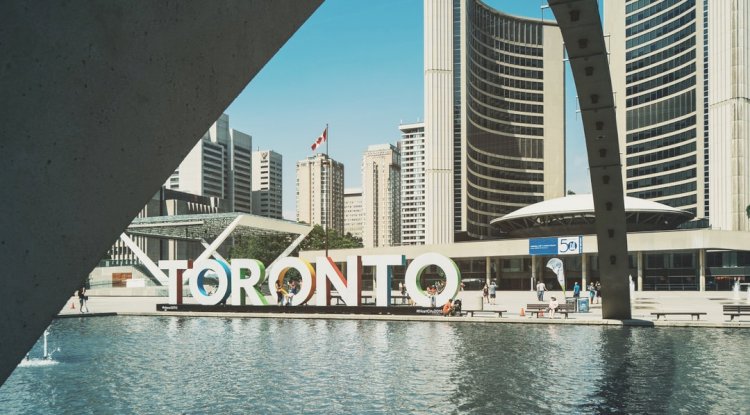How Nigeria lost $9.6b Gas Contract Award Suit in United Kingdom
The English high court who awarded a $9 billion fine against Nigeria in a case of breach of contract with Process and Industrial Developments Limited (P&ID), a little-known Irish engineering and project management company. Actually, the award was made as far back as July 2015 by an arbitration panel sitting in London. What happened in London was a failed legal move by Nigeria to stop the enforcement of that judgment. If it is implemented, Nigeria’s bank accounts in the UK, where parts of its foreign reserves are warehoused, would be at risk and that would be a catastrophe for its international trade, to put it in a less scary language.
In July 2015, the tribunal in London unanimously concluded that Nigeria was liable for the government having repudiated the agreement with P&ID. In January 2017, the tribunal ordered the Nigerian government to pay P&ID $6.6 billion in damages, plus interest that is accruing daily at a rate of over $1.2 million and now stands at $2.8 billion. However, because the Buhari administration refuses to pay, P&ID has brought court proceedings, in both the U.K. and the U.S., to enforce the award. If P&ID is successful, they can enforce the award against Nigeria by seizing its commercial assets.
In addition to the significance of the debt owed, the P&ID project represents a massive lost opportunity for Nigeria. The P&ID project would have generated an additional 2,000 megawatts of power for the national grid. Nigeria lacks sufficient electricity to power a modern economy and support its rapidly expanding population – the major increase in low-cost electricity supply brought by the P&ID project could have been transformative for millions of Nigerians. At present, the World Bank estimates that only 59% of the country have access to reliable supply of electricity.
The $9bn award against Nigeria
The English high court who awarded a $9 billion fine against Nigeria in a case of breach of contract with Process and Industrial Developments Limited (P&ID), a little-known Irish engineering and project management company. Actually, the award was made as far back as July 2015 by an arbitration panel sitting in London. What happened in London was a failed legal move by Nigeria to stop the enforcement of that judgment. If it is implemented, Nigeria’s bank accounts in the UK, where parts of its foreign reserves are warehoused, would be at risk and that would be a catastrophe for its international trade, to put it in a less scary language.
Although Nigeria is fighting tooth and nail to stop the enforcement of what is easily one of the largest arbitration awards in human history, anyone familiar with the entire fiasco knows that Nigeria is fighting a tough battle. The country is primarily basing its objection on the fact that Nigeria is a sovereign state and “has an absolute right to obtain an authoritative determination of its sovereign immunity”. Put another way, it is arguing that it has immunity as a sovereign nation — and therefore the judgment cannot be enforced against it, arguing also that P&ID did not fulfill its own part of the contract and cannot, therefore, be making any claims on us(Nigeria).
Muhammadu Buhari, Nigeria’s President
Government’s Defense
The Minister of information and Culture, Lai Mohammed, said in Abuja during a media briefing that the government’s concerns were primarily about “the underhanded manner in which the contract was negotiated and signed.”
“Indications are that the whole process was carried out by some vested interests in the past administration, which apparently colluded with their local and international conspirators to inflict grave economic injury on Nigeria and its people,” Mr Mohammed said.
Also, the Attorney-General of the Federation and Minister of Justice, Abubakar Malami, said conception, signing and execution of the contract to supply gas did not involve either the IOC’s or NNPC.
Equally, the Governor of the Central Bank of Nigeria (CBN), Godwin Emefiele, said there was no evidence in the apex bank’s records that the contractor invested about $40 million in the botched project.
“We have gone through our records, we don’t have any information to show this company brought in one cent into this country,” the CBN official said.
MORE riddles have beclouded the 2010 ill-fated Gas Supply and Processing Agreement (GSPA) which led to the award of a $9.6billion judgment against Nigeria.
Preliminary investigation by the Economic and Financial Crimes Commission (EFCC) indicated that the contract was signed by the Federal Ministry of Petroleum Resources at the time the late President Umaru Yar’Adua was already in coma.
The anti-graft agency is probing the likelihood of the forgery of the signature of a former Minister of Petroleum Resources, Dr. Rilwan Lukman, who was known for his high ethical standards.
Detectives are after a former legal director of the Ministry of Petroleum Resources, Mrs. Grace Taiga, who was central to the negotiation between the Federal Government and P&ID.
Also, a raid of offices believed to be that of P&ID in Lagos and Abuja at the weekend left the EFCC detectives stranded because there were no signs of the presence of the company in Nigeria.
It was learnt that the EFCC team discovered from the Corporate Affairs Commission (CAC) that there is another firm registered as P&ID Nigeria Limited with two Nigerian directors.
It was learnt that when one of the directors was contacted, he admitted being on the board of P&ID Nigeria Limited and agreed to meet with the EFCC team on Friday.
The director, however, had been unreachable to the operatives. The second female director is said to be a security agent in Qatar.
According to sources, EFCC investigators preliminary findings revealed that the contract was shrouded in secrecy.
The highpoint of the initial investigation is the fact that the contract was signed when Yar’Adua was in coma.
The former President was flown to Jeddah in Saudi Arabia in November 2009 for treatment of a heart condition.
But after three months in Saudi hospital, Yar’Adua was brought back to Nigeria and he remained incommunicado till his death on May 5, 2010.
The source said: “So far, detectives have discovered that the GSPA was signed on January 11, 2010 when Yar’Adua was already in coma. There was no evidence of presentation to the Federal Executive Council (FEC).
“They took advantage of Yar’Adua’s illness and vegetable state. Even ex-President Goodluck Jonathan, who took over as Acting President cannot say much about it because the agreement was done in a suspicious manner and limited to the Ministry of Petroleum Resources.
Abubakar Malami, Nigeria’s Attorney General
Government blame and act of negligence on the matter
The government has already instituted a probe of the contract.
Some Political analyst have advised on the matter that there was nothing wrong in probing the processes leading to the contract but cautioned that the domestic component of the matter should be tackled separately while engaging the P&ID in resolving the matter.
“Deal with your domestic culprits separately. That can take you as long as you want. (But) try to reach a settled agreement with the foreign aggrieved company. Don’t wait for one to deal with the other. Let the nation learn the right lesson from this whole mess,” the political analyst advised.
Some of the analyst opined that: “You entered into a mega-contract and you didn’t get anything from legal advice. I’m really sad for the country. We entered into that contract which included an arbitration clause and (we) willingly surrendered our freedom… in expectation of compliance.”
They said the Nigerian government is merely creating a fictional history to cover up its negligence. “That the desperate conspiracy theories point to something deeper: the Buhari administration is refusing to admit its own role in the P&ID case from 2015-2019 after it came into office,”.
Malami had, from the sidelines of last week’s Nigeria Bar Association (NBA) conference in Abuja, told CNBC Africa that he believed the P&ID project showed the possibility of some level of conspiracy to cause unnecessary economic damage against the interest of Nigeria’s economy.
“The government as a unit was delicately involved,” he said. “And that was the government in 2010. The award was in 2012, and then three years thereafter, the current administration under the leadership of Muhammadu Buhari came into place. So, the time when this administration came to place in 2015, the award was over three years. There was no appeal, no application for execution, no application to set the award aside.”
But the Irish firm, which said it would like to put the record straight, described Malami’s appearance on international television as a ploy to “wipe his hands and the hands of the Buhari administration clean.”
Listing the grounds on which the current administration would be found culpable in the arbitration award that threatens more than 20 per cent of Nigeria’s foreign reserves, P&ID explained that on May 3, 2015 (shortly before the Buhari administration assumed office for its first tenure) it offered to settle the dispute with the Nigerian government for $850 million, an amount less than 10 per cent of the actual arbitration award of $9.46 billion.
“President Goodluck Jonathan indicates they are handing over the negotiations to the incoming Buhari administration; May 29, 2015: Muhammadu Buhari was sworn in as the 15th president of Nigeria, but failed to appoint a cabinet for five months; July 17, 2015: The Arbitration Tribunal found in favor of P&ID (i.e. – the Liability Award). The new Buhari administration did not make any attempts at settling or negotiating with P&ID and did not make any effort to challenge the decision.
“Attorney General Malami was sworn in November 11, 2015, just under three months after the Liability Award; May 27, 2016: The Arbitration Tribunal wrote to the Nigeria government confirming: ‘As the parties will be aware from Procedural Order No 12, the Tribunal has decided that the seat of the arbitration in England. It follows that the Federal Court of Nigeria had no jurisdiction to set aside its Award.’
“Neither Attorney General Malami nor any representative of the Buhari administration did anything in response other than continuing with the proceedings, thereby tacitly accepting the analysis of the Arbitration Tribunal; June 24, 2016: having failed to set aside the Liability Award by falsely claiming the seat of arbitration was in Nigeria; not England, Attorney General Malami wrote personally to the arbitrators to say, ‘My office has taken over the handling of the above arbitration on behalf of the Ministry of Petroleum Resources.’”
He asked for and obtained an extension of time to file a defence to quantum, and appointed his own legal team in place of the Ministry of Petroleum Resource’s legal team.
What Analyst are Saying
Some Public analyst has called on Process and Industrial Development and the Nigerian government, to produce the schedule of milestones they reached in the breached gas contract.
While admitting that the government defaulted on the agreed terms, they said that it would have been impossible for a gas pipeline to be constructed without no work being done on the building of the processing plant.
“First, what are the obligations of PID and the parties to the contract? PID's Primary obligation is the construction of the gas processing plant to which the FGN's is to supply wet gas for processing,” they explained.
“Yes the gas pipeline was not constructed, what about the processing plant, has it been constructed?"
“Let the parties bring out the project schedule of the milestone on deliverables. This must be part of the contract agreement of this scale, that will show which of the parties is at fault and to what extent. You don't construct a pipeline to deliver gas without activities on the process plant on-going.
“What is the level of project execution and construction by PID. Must the gas pipeline be completed before the processing plant commenced? Let PID publish the level of their delivery to the project vis Engineering documents, equipment ordered and other materials procurements, etc.
"The agreement will be incomplete without the matrix of responsibilities and deliveries by parties. It is impossible to have such an agreement that is not backed by the division of responsibilities of the parties. That will amount to big scale fraud and scam… built into the Agreement ab initio.”
They also accused the federal government of breaching local contracts often.
It described the P&ID agreement default as a watershed moment for legal institutions to evaluate the government’s frequent abuse of local contract agreements.
“Many local contract agreements are defaulted by governments at all levels, with impunity. Contracts are awarded and agreement in place, signed and sealed, while governments will not appropriate funds for many years of their yearly budget appropriations. Hardly will you find local contract agreements that are without defaults by governments. This is a good case, avenue, and opportunity for our legal institutions to properly reflect and address the issues of government’s abuse of contract agreements.”
Presidential Order and probe on the case
President Muhammadu Buhari has directed the Economic and Financial Crimes Commission (EFCC), the National Intelligence Agency (NIA) and the Inspector General of Police (IGP) to conduct a thorough investigation into the recent $9.6 billion UK court’s judgement against Nigeria.
The Minister of Information and Culture, Lai Mohaamed, stated this in Abuja on Tuesday, while briefing journalists along with his colleagues: the Minister of Justice and Attorney-General of the federation, Abubakar Malami; the Minister of Finance, Budget and National Planning, Zainab Shamsuna Ahmed; and the Governor of Central Bank of Nigeria (CBN), Godwin Emefiele.
He said the directives was an attempt to unravel the circumstances surrounding the judgement of a UK Court authorising Process and Industrial Developments Ltd. (P & ID) to seize 9.6 billion dollars in Nigerian assets, over a contract entered into by the company and the ministry of petroleum Resources in 2010.
He also assured that the federal government was taking necessary steps to appeal the decision of the UK Court, to seek for a stay of execution of the decision to defend its rights and to protect the assets of the people of the Federal Republic of Nigeria.
About Process and Industrial Developments Limited (P&ID)
Process and Industrial Developments Limited (P&ID) is an engineering and project management company founded and led by
Michael Quinn and Brendan Cahill who had over 30 years’ experience of project management and execution in Nigeria.
P&ID conceived and planned a project that would deliver much-needed power generation to millions of Nigerians, and create profitable by-products for sale on the international market. Under an agreement with Nigeria, P&ID would build a state-of-the-art gas processing plant to refine natural gas (“wet gas”) into “lean gas” that Nigeria would receive free of charge to power its national electric grid. The lucrative natural gas liquid by-products (propane, ethane, butane) of this processing would be sold by P&ID on the international market, with expected profits in the billions of dollars.
In 2010, P&ID entered into a 20-year agreement with the federal government of Nigeria to execute this project.
Under the agreement, the Nigerian government was to ensure that all necessary pipelines and related infrastructure were installed and that arrangements were made with agencies and third parties to deliver gas for P&ID to process. However, the Nigerian government failed to meet its commitments, causing the project to flounder. This meant Nigeria would lose the opportunity of a new power supply, and P&ID would lose 20 years’ worth of profits.
P&ID attempted on multiple occasions to find a solution, and yet Nigeria refused to come to the table. Arbitration commenced in 2012 before a tribunal in London. Although during the arbitration Nigeria claimed to be interested in reaching an amicable settlement with P&ID, in fact Nigeria never made a serious offer and it became clear that Nigeria was attending settlement discussions only to delay the proceedings.
“P&ID was eager to deliver this promising project in the hope of bringing electricity to millions and helping Nigeria reach its full potential. Unfortunately, the government did not uphold its side of the contract, so the project failed. Having been unable to find a willing partner in government to resolve the matter forced us to seek remediation for the repudiation of our contract, which has resulted in an arbitration award against Nigeria,” said Brendan Cahill, co-founder of P&ID.
Michael Quinn, co-founder P & ID Ltd.
Quinn’s Business History In Nigeria
A detailed review of the First Witness Statement revealed that prior to the controversial gas project; P&ID had undertaken other business contracts in Nigeria.
Apart from being incorporated on May 30, 2006, as a business with address at Tortola, in the British Virgin Islands, P&ID Nigeria Limited was also incorporated on July 21 of the same year In Nigeria, with its registered Nigerian offices at 12, Vaal Street, Off Rhine Street, Ministers Hill, Maitama, Abuja. Findings showed the company handled the manufacturing and installation of the $108 million 5,000 metric tons capacity bulk storage vessels for liquid petroleum gas (LPG) for the NNPC.
The project for gas pressure vessels located in nine sites across Nigeria was executed under the NNPC“Butanisation Project” to prompt domestic use of gas in the country.
Also, findings showed the company was involved in the $57 million contract for the mechanical, engineering and instrumentation installation and commissioning for the onshore aspect of the NNPC Bonny Island Export Terminal at Port Harcourt Refinery.
Other projects P&ID was found to have been involved in, include the design, procurement, construction, installation, burial, commissioning and start-up of the Odidi Submarine Power (33 & 11 kV) and Fibre Optic Cable (36 Fibre Bundle) for Shell Western Division.
The $53 million contract entailed 33 km of 33 kV cable and 76 km of 11 kV cable laid through Niger Delta Swamps at depths of between four and 36 metres.
Other contracts include the procurement and construction work for the refurbishment of all fiscalisation, pumping and out loading facilities of Shell-Western Division’s Crude Loading Platform off the coast of Warri. The $18 million contract also includes the replacement of all utility fire and safety facilities and equipment, together with the complete rebuilding of the accommodation and communications module.
The firm also acted as the technical partner in a $16.7 million close-out audit on the $2.97 billion Bonga Field Development on behalf of NNPC and Shell, to determine the reasons for time and cost overruns of more than $1 billion on the project.
Mr Quinn said it was due to his company’s track record in projects of this nature, that they were awarded contracts to conduct feasibility studies in various oil and
$9.6bn judgement capable of ruining Nigerias economy, says Civil Society Organization (CSOs)
The economic cost to Nigeria of fighting and losing this case is substantial. Nigeria, which emerged from recession in 2017, approved a three-year plan in 2016 to borrow more from abroad. The government wants 40% of its loans to come from offshore to lower borrowing costs and help to fund its record-high budgets. In addition, the Buhari administration continues to incur costs in fighting this battle in the UK and US courts, and due to its failure to comply with court procedures, has been forced to pay some costs of P&ID’s counsel.
The re-elected Buhari administration must come to terms with the award and decide whether to continue with delaying tactics to postpone the inevitable or if the new government has the courage to atone for its previous mistakes and reach a settlement that will allow the country to move forward.
A British court judgment granted to Process and Industrial Development Ltd (P&ID) to take over $9.6bn worth of Nigeria’s asset abroad is capable of ruining the country’s economy if it is enforced, a coalition of civil society groups has said. The CSOs which described the judgment as fraudulent, a travesty to justice and disrespect for the sovereignty of Nigerian government, demanded that the judgment be set aside because it was ill-motivated and undermined the sovereignty of Nigeria. It urged the Federal Government and P&ID to go back to the 2015 judgment of the Arbitration Tribunal which awarded $850 million to the Irish firm. The CSOs made these demands when they protested at the United Kingdom High Commission and Embassy of Ireland in Abuja on Monday.
What's Your Reaction?




























